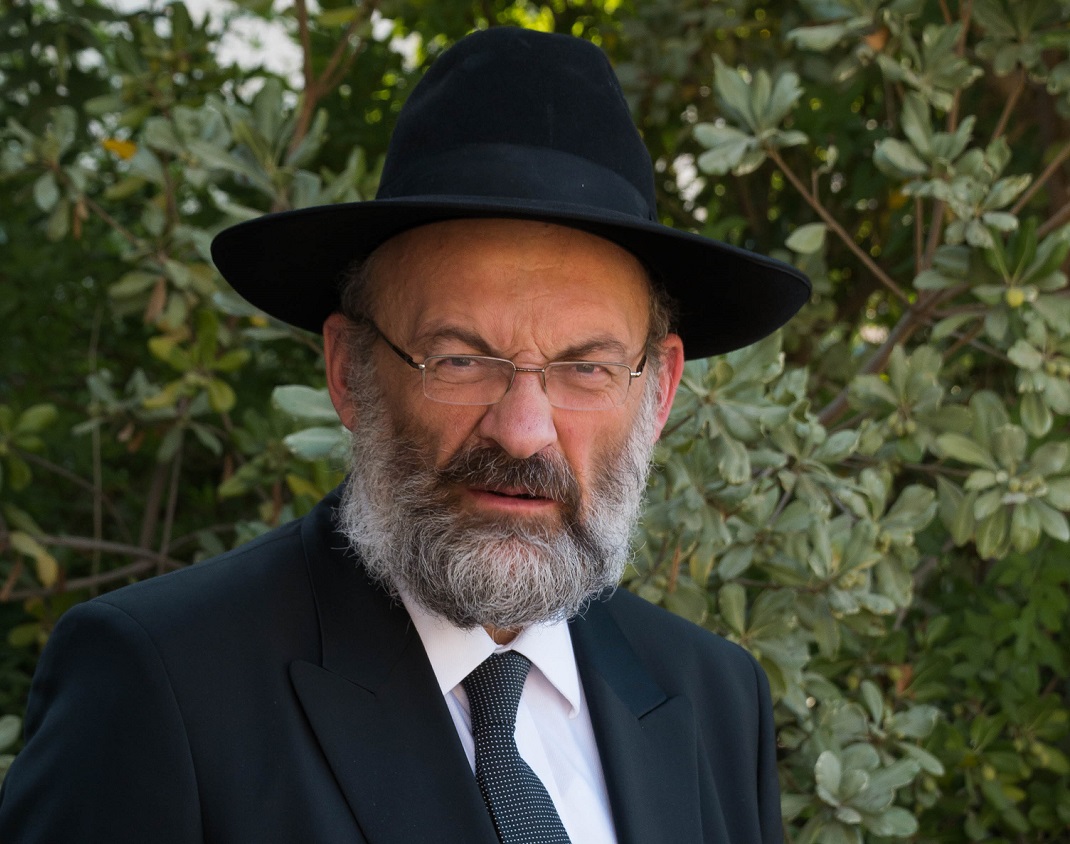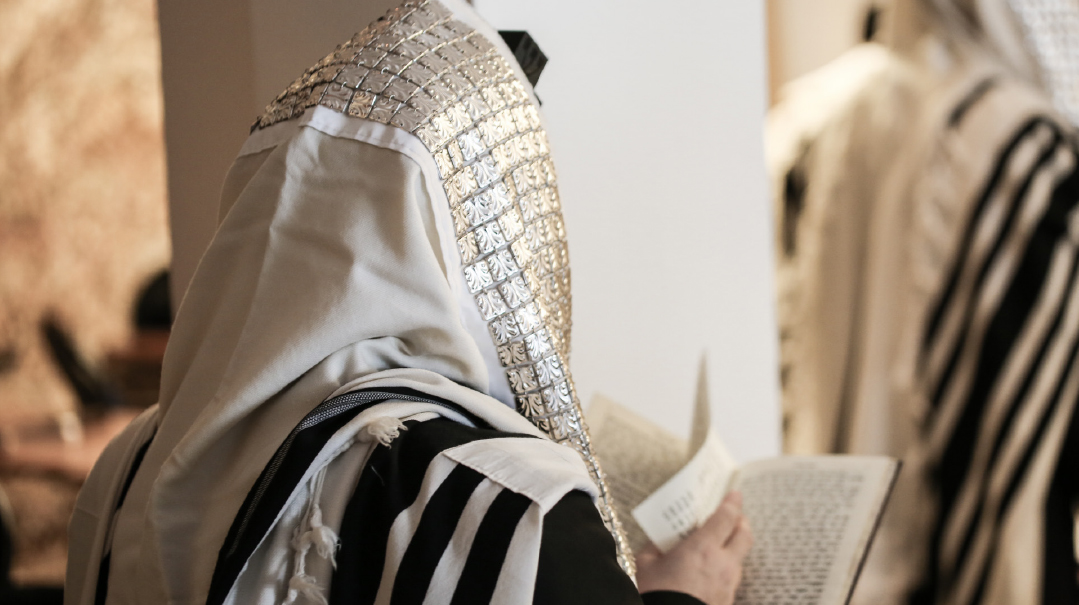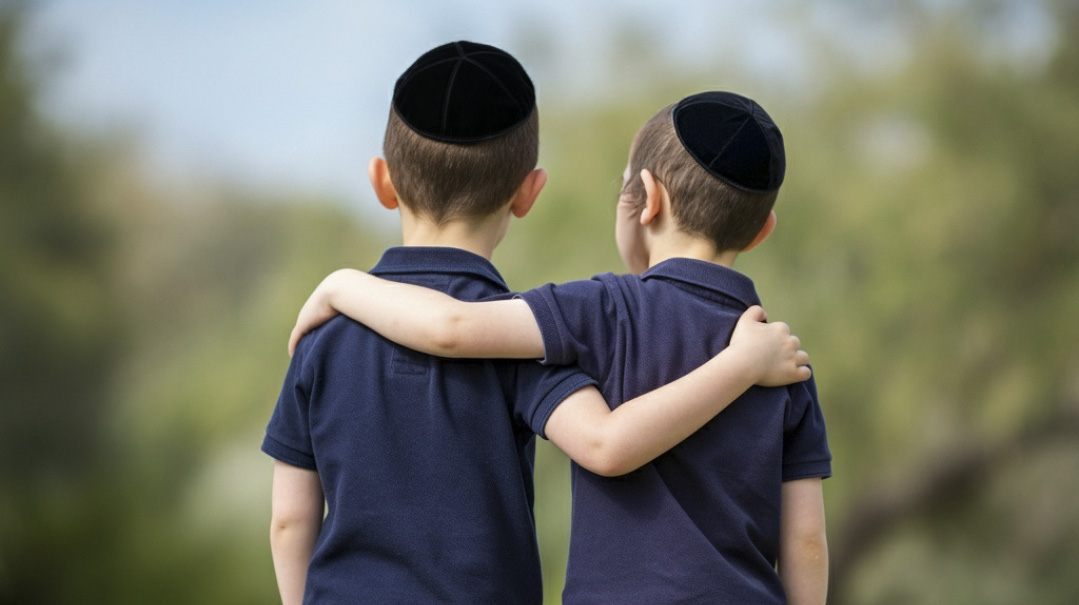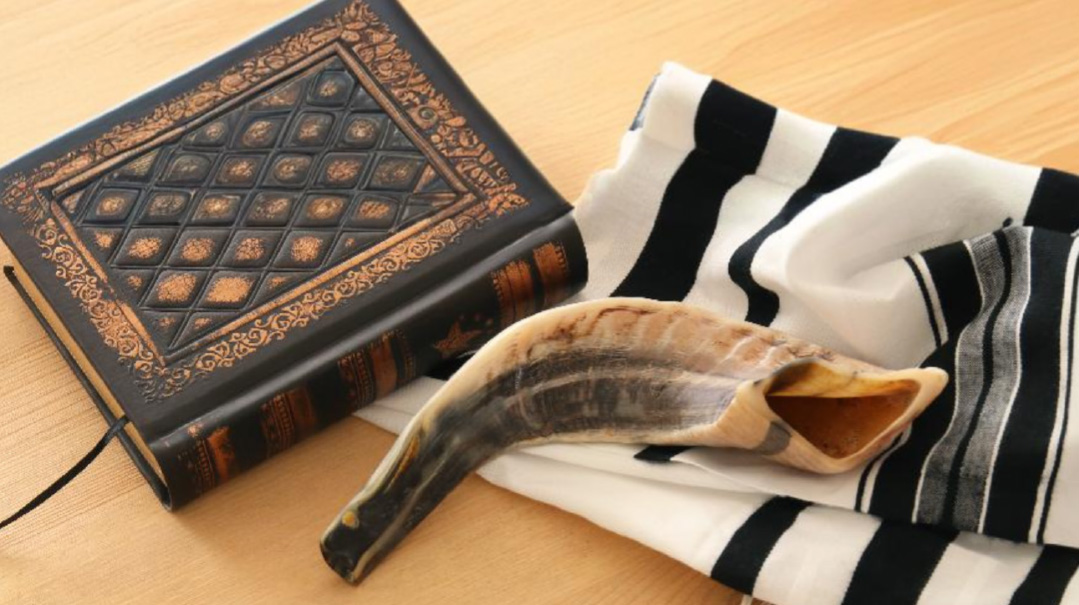Tefillah Is a Battle

For those of us who aren’t on the front lines, tefillah and Torah are our main contribution to the war effort

W
hen Jews around the world learned of the massacre of their brethren on Shemini Atzeres, every heart was broken, every eye filled with tears. The entire Jewish People was plunged into mourning. But within us, a soft voice in the back of our minds tried to comfort us: “Don’t worry, you’re safe. Baruch Hashem, we don’t have Hamas here.”
That meek voice has been totally drowned out by the shouts of our enemies. From London to Los Angeles, Montreal to Mexico City, Jews are being called out, villainized, and threatened. The entire Jewish People, without exception, has felt the impact of the attacks on Shemini Atzeres.
We all wonder what avodah Hashem wants from us in these troubling times. In the absence of a navi, we don’t have a complete answer. But the first step is to understand that the times we’re living in now are different, not just difficult. Behind the war and the explosion of anti-Semitism, there’s a spiritual root: Hashem is relating to Klal Yisrael in a new, harsher way.
We tend to view the world through the same lens our whole lives. I don’t mean just our cultural or philosophical worldview. As religious Jews, we view the world through the lens of emunah. But most people don’t realize that within emunah, there are various ways to view and understand what’s happening around us. That’s because Hashem’s hashgachah in the world takes different forms. One form is sechar v’onesh. Many times, we can identify how our actions, or the actions of others, brought about a fitting reward or punishment from Hashem. But other times, to understand what’s going on around us, we need to use a different lens.
The sudden insecurity of Jewish communities around the globe can’t be understood through the lens of sechar v’onesh. Could it be that by sheer coincidence, the Jews of every country in the world sinned, and Hashem is punishing each community at the same time in the same way? In New York they did aveiros, so Hashem increased anti-Semitism in New York. In Brazil, Australia, England, and Russia, they also did aveiros, so Hashem increased anti-Semitism in those countries as well — is that the story here? Clearly, there’s something else going on besides sechar v’onesh. Hashem is relating to the world in a different way.
IN THE PARADIGM of sechar v’onesh, Hashem’s hashgachah is directly correlated to our actions. But sometimes Hashem chooses to relate to the world at large in a way that isn’t governed by the actions of any individual or community. Sometimes Hashem relates to Klal Yisrael with a “shining countenance,” showing us favor because He wishes to, not because He’s rewarding us for our righteous deeds. And there are other times, like the present, when Hashem relates to the whole world with intense middas hadin. The maladies of Jewish communities around the world aren’t a local punishment for the aveiros of that community. Hashem is relating to the world in a harsher way.
Once we realize that, we can understand that our normal approach of “chizuk” in the face of troubles won’t cut it. Doing good deeds and strengthening our halachic observance are always necessary and valuable, but today, we need more than that. In the paradigm of sechar v’onesh, good deeds can tip the scales in our favor. But when Hashem isn’t just responding to our actions, but rather relating to the world at large in a strict way, good deeds alone won’t do the trick. We need to change the very way Hashem relates to the world.
Nefesh HaChaim writes that there are only two human endeavors that affect how Hashem connects to the world: tefillah and Torah. Every mitzvah has tremendous effects in the upper realms, but only tefillah and Torah can reach the depth of Hashem’s connection to the world. Only they have the power to make Hashem “switch gears” and relate to the world in a softer way. For those of us who aren’t on the front lines, tefillah and Torah are our main contribution to the war effort. They should be our primary avodah in the current crisis.
Space constraints don’t allow us to explore both tefillah and Torah in this column, so for now, let’s discuss tefillah. Now, we understand that tefillah is our avodah. But what specifically do we need to work on?
WHAT WE NEED to do is approach tefillah not just as a mitzvah, but as a battle. We’re all soldiers in this war. Some valiant Jews are putting their lives in danger in physical combat. The rest of us must fight on the spiritual front, and try to soften the strictness of Hashem’s hashgachah.
A soldier in battle knows one thing very clearly: He has a mission to accomplish. He knows he bears responsibility for fulfilling his individual charge, and he won’t rest until it’s completed. His mission outweighs all other concerns, including that of his own safety. We too have to approach our tefillah with a sober sense of responsibility, knowing we also have a critical mission.
This is foreign to most of us. We usually approach tefillah in — excuse me — a very self-centered way. We view our tefillah like an audience with the president, a forum for asking Hashem for everything we need or want. Or, perhaps more nobly, we view tefillah as a personal rendezvous with Hashem, a time to develop our relationship with Him.
But there’s a deeper dimension of tefillah that extends far beyond ourselves. Tefillah isn’t just about getting Hashem to grant our personal requests, or about cultivating our personal relationship with Him. It’s much more than that. Tefillah is the way we bring Hashem into the world. When Nefesh HaChaim writes that tefillah affects how Hashem connects to the world, he doesn’t just mean tefillah has that power; that’s the primary purpose of tefillah!
When we daven, we have a mission of cosmic significance: to complete the spiritual circuit and bring Hashem’s benevolence into the world in a tangible way. All the requests in Shemoneh Esreh revolve around Hashem’s connection to the world. When we ask Hashem for sound reason, forgiveness, and healing, we’re working to connect Him to the world and allow His benevolence to manifest itself in all those ways.
OUR MISSION ISN’T a calm operation; it’s a fierce battle. Hashem wants to give to us, so why does He need our tefillos to do so? One reason is because there are many spiritual obstacles standing in the way. We don’t deserve anything we ask for, and the prosecuting attorney in Hashem’s beis din is a master litigator. Our tefillos battle all those opposing forces, clearing the way for Hashem’s gifts to reach us. In these times especially, tefillah isn’t a one-on-one meeting with Hashem; there’s a real, formidable foe in the room as well.
When we daven Shemoneh Esreh, we need to approach each of the middle brachos as a battle. The enemy is trying to block Hashem’s benevolence from reaching us, and we have to yank it out of their clutches.
Now we’ve seen what the world looks like when Hashem’s gifts of reason, redemption, and healing fail to reach us. We can’t afford for that to happen again. Before we begin each of the middle brachos, we should take one moment to think about what we’re fighting for, and how great the danger is if we let the enemy win. Then, with all our might, we must cry out to Hashem that Klal Yisrael needs His goodness, even if we don’t deserve it.
When we daven, let’s remember that we bear responsibility for a mission that far transcends our personal needs. Klal Yisrael depends on our tefillos to bring Hashem’s benevolence into the world, and we can’t afford to fail. May we — together with the soldiers on the front lines — succeed in our mission, and soon see Hashem’s favorable countenance shine upon us once more.
—Prepared for print by Rabbi Eran Feintuch
(Originally featured in Mishpacha, Issue 988.
Oops! We could not locate your form.







